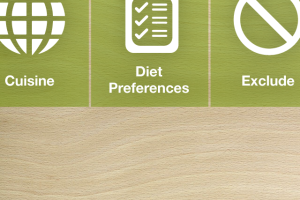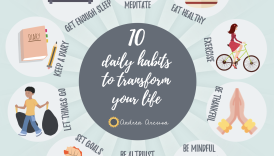Decode the Science of Healthy Living with WebMD’s Guidance

Introduction to WebMD’s Guidance
Understanding the Importance of Healthy Living
In today’s fast-paced world, the significance of healthy living cannot be overstated. Individuals often find themselves juggling numerous responsibilities, which can lead to neglecting their health. However, a commitment to well-being provides numerous benefits that can enhance one’s quality of life. Consider this: adopting a healthy lifestyle can:
- Decode the Science of Healthy Living with WebMD’s Guidance
- Introduction to WebMD's Guidance
- Understanding the Importance of Healthy Living
- Overview of WebMD's Platform
- Nutrition Tips for a Healthier Lifestyle
- Balanced Diet Recommendations
- Superfoods to Include in Your Diet
- Physical Activity and Fitness Recommendations
- Benefits of Regular Exercise
- Creating a Sustainable Fitness Routine
- Mental Health and Wellbeing Strategies
- Stress Management Techniques
- Importance of Adequate Sleep
- Preventive Healthcare Measures
- Importance of Regular Health Check-ups
- Vaccination and Immunization Guidelines
- Boost energy levels
- Improve mood and mental clarity
- Reduce the risk of chronic diseases
- Promote longevity
Reflecting on my own journey, I recall a period when my diet consisted mainly of takeout and sugary snacks. It wasn’t until I decided to include more nutritious foods and regular exercise that I started feeling more vibrant and focused. This personal transformation highlights how small changes can have a considerable impact.
Overview of WebMD’s Platform
WebMD stands out as a comprehensive platform dedicated to health and wellness. With an abundance of resources, it serves as a guiding light for anyone wishing to take control of their health. The website features:
- Health Information: Articles written by healthcare professionals that cover a wide range of topics, from nutrition and fitness to mental health and disease prevention.
- Symptom Checker: A tool that allows users to input symptoms and receive potential causes, providing valuable insights before seeking professional advice.
- Interactive Tools: Such as weight loss trackers, meal planners, and workout guides, all designed to facilitate personal health management.
One of the key strengths of WebMD is its user-friendly approach. Instead of overwhelming visitors with technical jargon, the site breaks down complex information into digestible content, making it accessible to everyone—regardless of their health knowledge. As individuals seek to navigate their health journeys, platforms like WebMD not only make information easily accessible but also empower them to make informed choices. Through Each step of the way, WebMD serves as a trusted companion, providing guidance on the importance of cultivating a healthier lifestyle.
Nutrition Tips for a Healthier Lifestyle
Balanced Diet Recommendations
Transitioning from the understanding of health and well-being, one of the most significant aspects of a healthier lifestyle is adopting a balanced diet. It is essential to nourish the body with the right foods to ensure it functions optimally. A balanced diet typically includes:
- Fruits and Vegetables: Aim for a variety of colors on your plate! These provide essential vitamins, minerals, and fiber.
- Whole Grains: Opt for whole grains like brown rice, quinoa, and whole wheat bread instead of refined grains. They keep you full longer and are less processed.
- Lean Proteins: Incorporate sources like chicken, fish, beans, and legumes. They play a crucial role in muscle repair and growth.
- Healthy Fats: Don’t shy away from healthy fats found in avocados, nuts, and olive oil. These are vital for brain health and hormone regulation.
Reflecting on my own eating habits, I recall my initial struggle with meal planning. By introducing more colorful vegetables and whole foods into my diet, I found my energy levels increased significantly, proving that balanced meals truly make a difference.
Superfoods to Include in Your Diet
Alongside a balanced diet, adding superfoods can elevate nutritional intake. These foods are nutrient-dense and pack a punch with health benefits. Consider including these superfoods in your daily meals:
- Blueberries: High in antioxidants, they can help combat aging and support heart health.
- Kale: A leafy green that’s rich in vitamins A, C, and K, as well as calcium.
- Quinoa: A complete protein that contains all nine essential amino acids—perfect for vegetarians!
- Walnuts: Great for brain health, they contain omega-3 fatty acids and can be easily added to salads or oatmeal.
I remember the first time I tried incorporating kale into my smoothies. Initially skeptical, I was pleasantly surprised at how deliciously refreshing it could be. Paired with bananas and a splash of almond milk, it soon became a staple in my breakfast routine. Establishing these dietary habits, focusing on a balanced diet, and integrating superfoods can dramatically enhance one’s health journey, making nutrition both enjoyable and beneficial.
Physical Activity and Fitness Recommendations
Benefits of Regular Exercise
Building on the foundation of good nutrition, physical activity is equally essential for a healthy lifestyle. Regular exercise offers a cornucopia of benefits that extend beyond just physical appearance. Engaging in consistent physical activity can:
- Boost Mood: Exercise releases endorphins, often known as “feel-good” hormones, which can enhance overall mood and alleviate feelings of stress and anxiety.
- Increase Energy Levels: Surprisingly, regular physical activity can actually boost your energy. After exercising, people often feel more alert and less fatigued.
- Improve Sleep Quality: Those who incorporate regular workouts tend to experience deeper, more restful sleep.
- Support Weight Management: Exercise helps burn calories and build muscle, contributing to maintaining a healthy weight.
I remember the days when I neglected exercise in favor of other tasks. After integrating regular workouts into my routine, I not only felt physically stronger but also found that my mood improved dramatically. For instance, a brisk walk in the morning set a positive tone for my entire day.
Creating a Sustainable Fitness Routine
Now, establishing a sustainable fitness routine is crucial. The goal is to create a schedule that feels like a natural part of life rather than a chore. Here are some practical steps to help achieve this:
- Set Realistic Goals: Start with achievable objectives, such as walking for 20 minutes a day, and gradually increase intensity.
- Find Activities You Enjoy: Whether it’s dancing, swimming, or cycling, exercise should be fun, not a punishment. I’ve found that participating in group fitness classes can make workouts enjoyable while also holding you accountable.
- Schedule Workouts: Treat your workout time like an important appointment. Block off time in your calendar to ensure you prioritize it.
- Listen to Your Body: It’s essential to pay attention to how your body feels. If you’re tired, opt for a lighter workout or a day of rest.
One approach that has worked wonders for me is trying out different classes at my local gym. This keeps workouts fresh and exciting while discovering new passions along the way. By focusing on the myriad benefits of exercise and customizing a fitness routine to fit one’s lifestyle, individuals can cultivate a fulfilling and lasting approach to physical activity.
Mental Health and Wellbeing Strategies
Stress Management Techniques
After discussing the physical aspects of health, it’s equally important to delve into mental health and well-being. Managing stress is a crucial component of a balanced lifestyle. In our fast-paced world, stress can often feel overwhelming, but having effective strategies in place can make a significant difference. Some effective stress management techniques include:
- Mindfulness and Meditation: Practicing mindfulness can ground you in the present moment, reducing anxiety. I remember attending a meditation class for the first time and feeling a wave of calm wash over me by simply focusing on my breath.
- Physical Activity: As previously mentioned, exercise can act as a natural stress reliever. A quick jog or yoga session can have immediate positive effects on stress levels.
- Deep Breathing Exercises: Simple deep breathing can help calm the mind and body. Try inhaling deeply through your nose for a count of four, holding for four, and exhaling through your mouth for four. Repeat as needed.
- Journaling: Writing down thoughts and feelings can provide an outlet for stress. It’s a great way to reflect on challenges and find clarity. Personally, I often jot down a few lines each evening, allowing me to process my day and unwind.
Utilizing these techniques can help individuals cope with stress effectively, enhancing their overall well-being.
Importance of Adequate Sleep
Moving beyond stress management, adequate sleep is another fundamental pillar of mental health. Sleep and mental clarity are intricately linked. Without enough quality sleep, it becomes challenging to manage daily stressors. Here’s why prioritizing sleep is vital:
- Improves Cognitive Function: Lack of sleep can affect concentration and decision-making. On nights when I’ve skimped on sleep, I’ve often found it hard to focus on tasks the next day.
- Enhances Mood Stability: Sleep deprivation can lead to irritability and heightened emotional responses. Ensuring a full night’s sleep can greatly improve emotional resilience.
- Supports Overall Health: Quality sleep helps boost the immune system, reduce heart disease risk, and instill a sense of overall well-being.
To improve sleep hygiene, consider these tips:
- Establish a Sleep Schedule: Go to bed and wake up at the same time every day, even on weekends.
- Create a Relaxing Bedtime Routine: Wind down with calming activities, such as reading or taking a warm bath.
- Limit Screen Time Before Bed: Try to disconnect from screens at least an hour before sleep to promote better rest.
By integrating effective stress management techniques and prioritizing adequate sleep, individuals can bolster their mental health. These strategies create a harmonious balance that contributes significantly to one’s overall well-being.
Preventive Healthcare Measures
Importance of Regular Health Check-ups
Now that we’ve explored the significance of mental health strategies, let’s shift our focus to preventive healthcare measures. One of the most effective ways to maintain overall health is through regular health check-ups. These appointments provide an opportunity to assess health status and catch potential issues before they become serious. Here are some reasons why regular check-ups are essential:
- Early Detection: Many health conditions, such as high blood pressure or diabetes, often present no symptoms in the early stages. Regular check-ups enable proactive monitoring of such issues, ensuring timely intervention.
- Health Monitoring: Regular assessments allow healthcare professionals to track changes in your health over time. Personal experiences at my annual check-up have revealed subtle shifts that I might have overlooked otherwise.
- Personalized Health Advice: During check-ups, doctors can tailor health advice based on individual needs, whether that’s dietary recommendations or notifications about screenings due based on age or risk factors.
A routine check-up generally includes a physical examination, blood tests, and a review of medical history. Making them a priority can cultivate a culture of proactive health management.
Vaccination and Immunization Guidelines
In conjunction with routine check-ups, vaccinations play a critical role in preventive healthcare. Vaccines not only protect individuals but also contribute to community immunity, preventing the spread of contagious diseases. Here are key points to consider regarding vaccinations:
- Preventive Health: Vaccines prevent a wide range of illnesses, from flu and measles to HPV and hepatitis. My own experience with getting the flu vaccine annually has drastically reduced my chances of getting sick during the peak season.
- Guidelines by Age Group:Different life stages come with specific vaccination needs:
- Children: Vaccines for diseases like polio, MMR (measles, mumps, rubella), and varicella (chickenpox).
- Adults: Boosters for tetanus-diphtheria-pertussis (Tdap) and vaccines like shingles and pneumonia become increasingly important.
- Stay Informed: It’s crucial to discuss any vaccinations with a healthcare provider to ensure that your immunization status is up to date. Having a clear vaccination record can streamline healthcare visits and planning.
Incorporating regular health check-ups and adhering to vaccination guidelines are vital strategies in a comprehensive preventive healthcare plan. By prioritizing these measures, individuals can take significant steps toward safeguarding their health and well-being.




